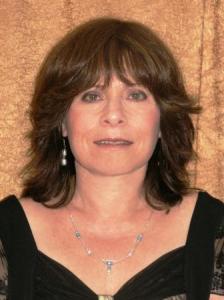By Adina Bar-El, Ph.D

NIR YISRAEL, Israel — Finally the quiet has returned to our area of Israel. We hope that it will continue a long time.
On September 1st– after the “enjoyment” of the children and their families during the war– all the children returned to their educational institutions: the young children to their preschools and kindergartens and the bigger ones to their schools. Finally the parents too can return to their places of work and to free up the grandparents from their “duty.”
Amit and Maayan–twin sons of my daughter Hadas and her husband Boaz–have begun third grade at the Nitzan elementary school at Kibbutz Nitzanim, very close to us in Hof Ashkelon. Every morning the yellow school bus picks them up and at noon returns them. Omri, their younger brother, goes to a kindergarten on our moshav, Nir Yisrael. Usually after school, they come and stay with us, saba and savta, in the afternoons, because their mother Hadas works and doesn’t get home before 4 p.m. Their father Boaz works long hours in television, often into the evenings and nights. This is the normal situation for many families in Israel: children return from school much earlier than their parents get home. For parents who are lucky enough to live near grandparents the situation is less problematic. For others, parents have to arrange a babysitter or find a decent afternoon daycare–both of which are not cheap and weighs on the budget of the young parents.
The situation is different in kibbutzim. There, after school, the children have a warm, structured and interesting framework until later in the afternoon.
Along these lines, I have a nice story for you. My son Ran and his family live in Ashkelon and suffered a lot under rockets during Operation Protective Edge this summer. Occasionally fthey left the region for a few days to go where rockets were not exploding. One time, they were invited by a Facebook friend to Kibbutz Ein Gedi. So they went and were very nicely hosted.
They fell in love with the pastoral, green location and the very nice community of people. It seems that the kibbutz members also liked them very much because they offered my son Ran a job that would be perfect for him in the field of education. And so, in a matter of a few days, they had to decide if they wanted to move (from Ashkelon) and live on the kibbutz, and they decided to do so!
This is a really good fit for them. They always had dreamed of living in a village.
Since this was a few days before the beginning of the new school year, they got themselves ready very quickly and in three days they packed up all their clothes, books, toys, and furniture to move to a new home.
Now they are living there, on Kibbutz Ein Gedi, and they plan to become members of the kibbutz! The four children already are in preschools and school. By the way, Zohar, the eldest son, is in 4th grade. He skipped from 2nd to 4th grade after they gave him special testing in the Ashkelon school system and verified that he was gifted.
To summarize, my husband Moshe and I live in “the center” in Moshav Nir Yisrael right next to my daughter Hadas and her family. Now my son Ran lives with his family in the South, in Kibbutz Ein Gedi (near the Dead Sea). Our son Nir lives with his family in the Galilee. And we have to travel 2 to 2.5 hours to visit each of our two sons and their families. I know that in the United States, that isn’t thought of as far away, but in Israel, it is a big distance. But I am very happy for them, especially that each one now lives in a village and that especially one of our children lives on a kibbutz.
I adore the life style of a kibbutz. When I was in the army, I was on two kibbutzim which were very close to the Gaza Strip, first at Kibbutz Nahal Oz which suffered from a lot of rocket fire during Operation Protective Edge this summer and where the little four-year-old boy was killed. Afterwards I was on Kibbutz Erez, which also had rockets raining down on it this summer, and Hamas terrorists almost succeeded in capturing people on the kibbutz through a tunnel they had just exited on the kibbutz.
I need to point out that Operation Protective Edge proved and reminded everyone of the importance of our kibbutzim: They protect the borders, they develop and expand agriculture, have a wonderful educational system and community environment and also act in a way of solidarity. There are many examples of kibbutzim far from the rocket fire that received members of kibbutzim in the line of fire this summer, hosting them at their own expense (not with the country paying them) and cared for all the needs of the visiting families with young children—housing, food, relaxation.
I and all of us pray for “sheket” quiet. Right now, it is calm for the moment in the south, but in the north, on the border with Syria, forces of Tzachal, the Israeli army, are on alert.
Sending blessings of peace and in all your preparations toward the New Year.
*
Dr. Bar-El is a freelance writer and the author of numerous children’s books and is considered an expert on the children’s literature of Poland between the two world wars. She may be contacted via adina.bar-el@sdjewishworld.com